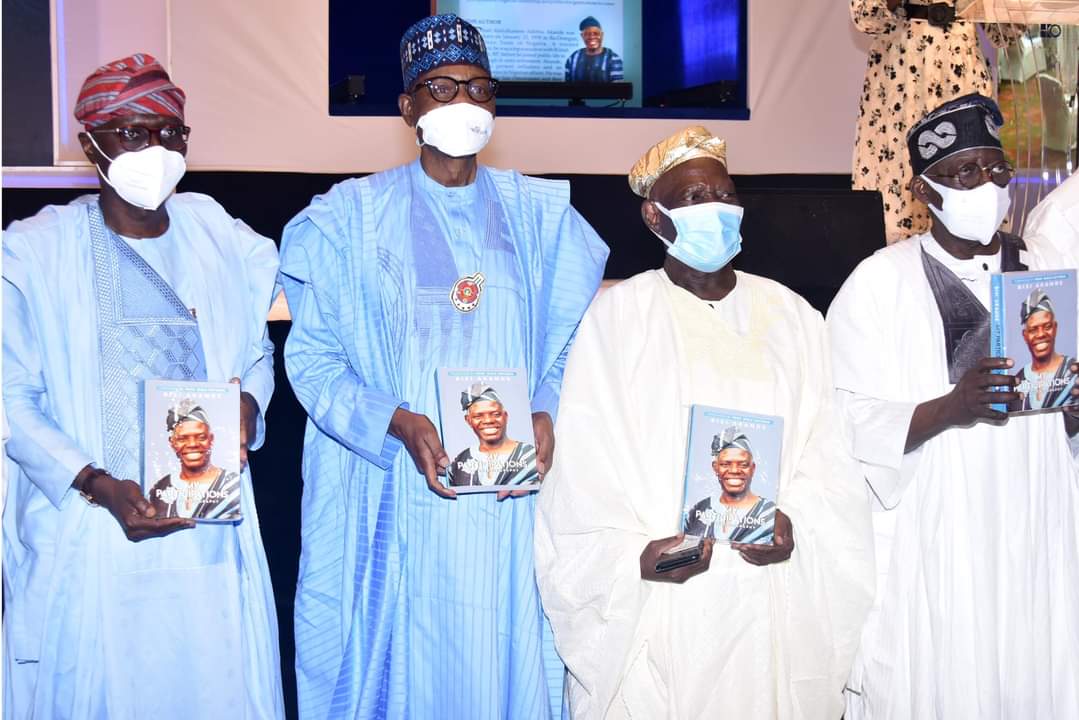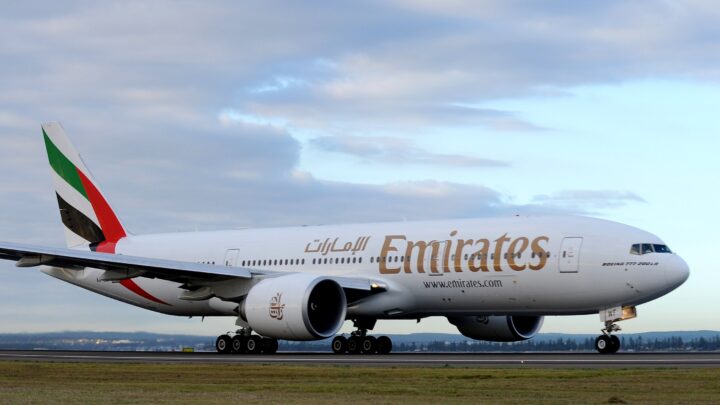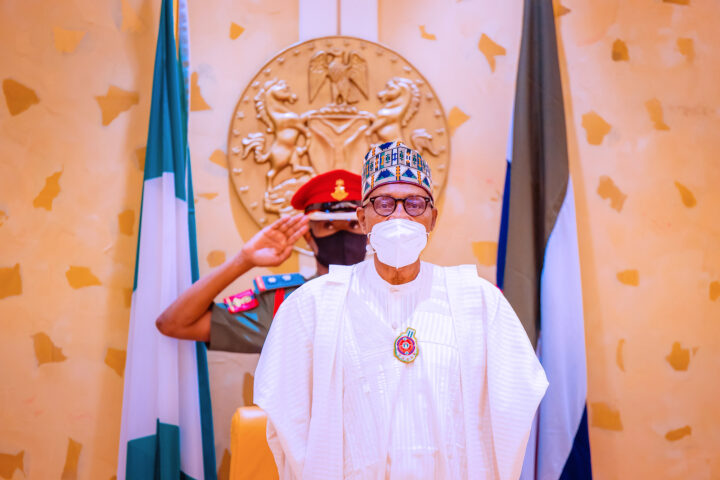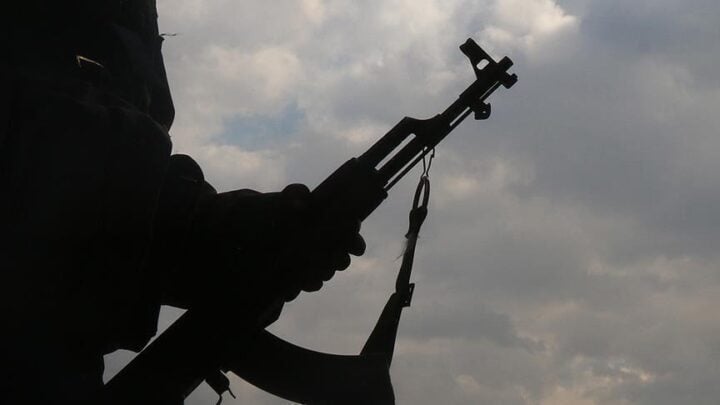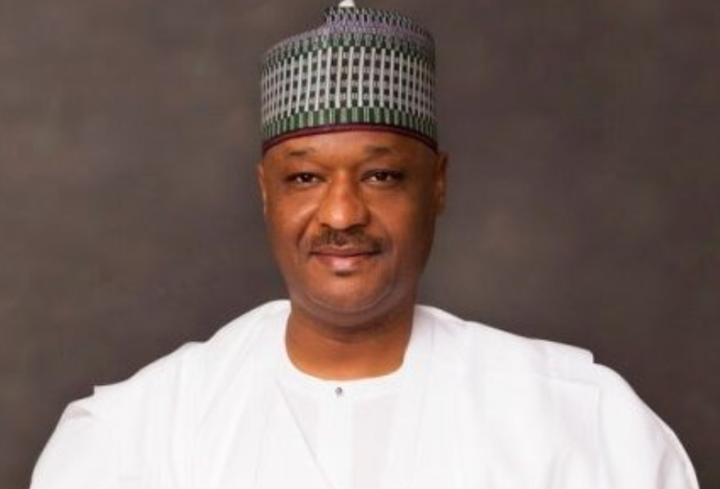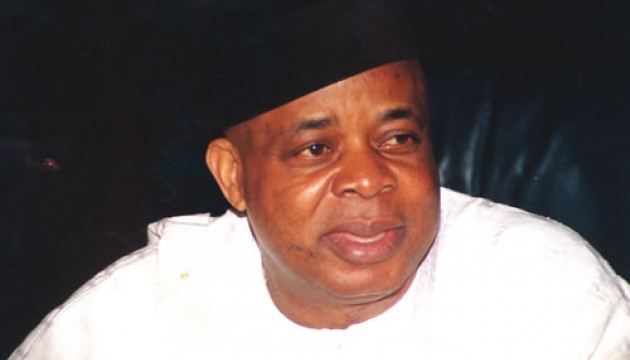Being the keynote address delivered by Femi Falana (SAN) at the Cable Colloquium held in Lagos on December 15, 2021
Investigative journalism has been defined as “a form of journalism in which reporters deeply investigate a single topic of interest, such as serious crimes, political corruption, or corporate wrongdoing. An investigative journalist may spend months or years researching and preparing a report”. Investigative journalism is also said to mean “the unveiling of matters that are concealed either deliberately by someone in a position of power, or accidentally, behind a chaotic mass of facts and circumstances – and the analysis and exposure of all relevant facts to the public. In this way, investigative journalism crucially contributes to freedom of expression and media development, which are at the heart of UNESCO’s mandate”.
There are three types of investigative journalism and these categories may overlap.
1. Uncover scandals that are aimed at detecting violations of laws, rules or norms of decency, by organisations or individuals.
Advertisement
2. Review policies or functioning of government, businesses and other organisations.
3. Draw attention to social, economic, political and cultural trends, which are aimed at detecting changes in society.
Good governance has 8 major characteristics. It is participatory, consensus-oriented, accountable, transparent, responsive, effective and efficient, equitable and inclusive and follows the rule of law. It assures that corruption is minimized, the views of minorities are taken into account and that the voices of the most vulnerable in society are heard in decision-making. It is also responsive to the present and future needs of society. Right from the colonial era, Nigerian journalists have always been at the forefront of the struggle for good governance under very hostile conditions.
Advertisement
Tenets of good governance in Nigeria
For the purpose of this discourse, it is submitted that the fundamental objectives enshrined in chapter two of the Nigerian constitution contain the tenets of good governance. Since the republic is said to be a state based on the principles of democracy and social justice the security and welfare of the people shall be the primary purpose of government. To promote the welfare of the people the state is obligated to secure full residence rights for every citizen and national integration in all parts of the country, ensure the control of the national economy in such manner as to secure the maximum welfare, freedom and happiness of every citizen and the distribution of the material resources of the nation to serve the common good.
In furtherance of the social order, the state shall direct its policy towards ensuring employment opportunities for all citizens, adequate medical and health facilities for all persons, equal pay for equal work, protection of children, young persons and the aged, public assistance in deserving cases, provisions of adequate shelter, suitable and adequate food, a reasonable national minimum living wage, old age care and provisions, sick benefits and welfare of the disabled. To eradicate illiteracy and enhance national development there shall be free education at all levels including free adult literacy programme.
It is indisputable that the aforesaid objectives cannot be achieved by political parties whose manifestoes and programmes are based on market fundamentalism. On that ground, every political party or candidate should therefore be made to disclose to the electorate, through the media, how they intend to achieve the fundamental objectives. To promote public accountability the media should ensure that the assets and liabilities of all elected leaders are declared and made available to the electorate. Shehu Sani revealed that the salary of a senator is N750,000 and N13 million allowance per month. The senate president, Ahmad Lawan, has just disclosed that the N13 million is not for a month but a whole session!
Advertisement
Duty of the media to promote public accountability
The constitution has imposed a duty on the press, radio, television and other agencies of the mass media “to uphold the fundamental objectives contained in Chapter two of the constitution and uphold the responsibility and accountability of the government to the people”. In discharging the onerous duty the press is required to place public interests over and above commercial considerations. To underscore the significance of the fundamental objectives of the programme, as well as the aims and objectives of a political party, shall conform to the provisions of chapter two of the constitution. Before the assumption of office, every elected or appointed person shall declare their assets and pledge to observe and implement the provisions of the fundamental objectives and directive principles of state policy. In reporting the electioneering campaigns the media is required to confirm the commitment of political parties and candidates to implement the fundamental objectives.
However, in order to continue to promote opacity in public affairs, the 36 state governments except for the Ekiti state government, have refused to adopt the freedom of information act. The court of appeal that since the freedom of information act is a federal enactment it is not applicable throughout the Federal Republic of Nigeria. With respect, the court did not apply the case of Attorney-General of Ondo v Attorney-General of the Federation the supreme court held that “going by these definitions the directive under section 15 subsection (5) of the constitution will apply to all the three tiers of government, namely, the federal government, state government and local government. In that cases, the power to legislate in order to prohibit corrupt practices and abuse of power is concurrent and can be exercised by the federal and state governments by virtue of the provisions of section 4 subsections (2), (4)(b), and (7)(c) of the constitution”.
Since the national assembly enacted the freedom of information act in order to promote public accountability and transparency in accordance with section 22 of the constitution which is part of the fundamental objectives and directive principles of state policy it is of general application in Nigeria. Alternatively, access to information is guaranteed by section 39 (1) of the constitution which provides that “every person shall be entitled to freedom of expression, including the freedom to hold opinions and to receive and impart ideas and information without interference. In addition, Article 9 (1) of the African Charter on Human and Peoples Rights guarantees access to information. It states that “Every individual shall have the right to receive information”.
Advertisement
Challenge of the Twitter ban at the federal high court and ECOWAS court by SERAP
In view of the conflicting reports in respect of the two cases filed by the Socio-Economic and Accountability Project (SERAP) over the suspension of Twitter in Nigeria by the federal government, it is pertinent to throw some light on the matter. Last week, the federal high court struck out the suit filed by SERAP to stop the Nigerian Broadcasting Corporation (NBC) and the minister of information and culture, Lai Mohammed, from using their patently unlawful directive to all TV and radio stations not to use Twitter, and to delete their accounts as a pretext to harass, intimidate, suspend or impose criminal punishment on journalists and broadcast stations simply for using social media platforms. The suit followed the order by NBC asking TV and radio stations to “suspend the patronage of Twitter immediately”, and telling them to delete ‘unpatriotic’ Twitter after the social media giant was banned in the country for deleting President Muhammadu Buhari’s tweet.
Advertisement
In suit number FHC/ABJ/CS/496/2021, SERAP sought an order of perpetual injunction restraining the government of President Buhari, the NBC, and Mohammed and any other persons from censoring, regulating, licensing and controlling the social media operations and contents by broadcast stations, and activities of social media service providers in Nigeria. SERAP also sought an order setting aside the directive by NBC and Mohammed asking broadcast stations to stop using Twitter, as it is unconstitutional, unlawful, inconsistent and incompatible with the Nigerian constitution of 1999 [as amended] and the country’s obligations under the African Charter on Human and Peoples’ Rights and the International Covenant on Civil and Political Rights.
In another development, SERAP and 176 concerned Nigerians filed a lawsuit against the government over “the unlawful suspension of Twitter in Nigeria, criminalization of Nigerians and other people using Twitter, and the escalating repression of human rights, particularly the rights to freedom of expression, access to information, and media freedom in the country”. Following the deletion of Buhari’s tweet, the minister of information and culture, Lai Mohammed announced the suspension of Twitter in Nigeria. The government has also threatened to arrest and prosecute anyone using Twitter in the country, while the National Broadcasting Commission (NBC) has asked all broadcast stations to suspend the patronage of Twitter.
Advertisement
In the suit no ECW/CCJ/APP/23/21 filed before the ECOWAS community court of justice in Abuja, SERAP and the concerned Nigerians are seeking: “An order of interim injunction restraining the Federal Government from implementing its suspension of Twitter in Nigeria, and subjecting anyone including media houses, broadcast stations using Twitter in Nigeria, to harassment, intimidation, arrest and criminal prosecution, pending the hearing and determination of the substantive suit”. In the suit, the plaintiffs contend that “if this application is not urgently granted, the federal government will continue to arbitrarily suspend Twitter and threaten to impose criminal and other sanctions on Nigerians, telecommunication companies, media houses, broadcast stations and other people using Twitter in Nigeria, the perpetual order sought in this suit might be rendered nugatory”.
The arbitrary action taken by the federal government and its agents has negatively impacted millions of Nigerians who carry on their daily businesses and operational activities on Twitter. The suspension has also impeded the freedom of expression of millions of Nigerians, who criticise and influence government policies through the microblogging app. The suspension of Twitter is arbitrary, and there is no law in Nigeria today permitting the prosecution of people simply for peacefully exercising their human rights through Twitter and other social media platforms. SERAP and the concerned Nigerians are therefore asking the ECOWAS court of justice to declare the suspension illegal and set same aside. The case is still pending at the Ecowas court.
Advertisement
Urgent need to decriminalise libel laws
Nigeria has continued to apply colonial anti-media laws such as criminal libel and sedition as well as the Cybercrimes Act and the National Broadcasting Act and code to deal ruthlessly with media houses and journalists. But in realising that public accountability cannot be promoted under authoritarian rule, a number of African countries have decriminalized the law of defamation. Three among the member states of the Economic Community of West African States (ECOWAS) have freed the media from the shackles of colonialism. Ghana paved the way on July 27, 2001, when her parliament unanimously repealed the Criminal Libel and Seditious Laws, which had been used to incarcerate a number of journalists in the past. The repeal follows the passage of the Criminal Code (Repeal of the Criminal and Seditious Laws – Amendment Bill) Act 2001. Liberia and Sierra Leone have since followed suit in 2018 and 2020 respectively.
On 14 February 2018, the court of justice of Economic Community of West African States (ECOWAS) issued a judgment in Federation of Journalists v The Gambia that found most Gambian media laws violated freedom of expression. The court asked the government to repeal or amend all criminal laws on libel, sedition, and false news in line with Gambia’s obligations under international human rights law.
In the case, Lohé Issa Konaté v. Burkina Faso, the African Court unanimously found that Burkina Faso violated Article 9 (freedom of expression) of the African Charter on Human and Peoples’ Rights, Article 19 (freedom of expression) of the International Covenant on Civil and Political Rights (ICCPR), and Article 66(2) (the press) of the Revised Treaty of the Economic Community of West African States by imposing a sentence that was disproportionate to the purpose of the State’s national laws. AfCHPR, Lohé Issa Konaté v. Burkina Faso. The court found that the defamation law in Burkina Faso is illegal as it prescribes imprisonment for journalists
The 2023 general elections
Even though the INEC has not officially authorized the commencement of campaigns for the 2023 general election, politicians have been seeking the support of the electorate in the media, by way of sponsored articles and programmes. But in selling their programmes some of the political parties have engaged in mudslinging and libellous publications. Politicians who are campaigning for votes should be made to proffer solutions to the crisis of underdevelopment plaguing the country. The media should not allow reactionary politicians to divert attention from the hydra-headed problems of the comatose economy, unemployment, insecurity, infrastructural decay, looting of the treasury, armed robbery, kidnapping, terrorism etc. The EFCC has just disclosed that a serving governor in the north-central zone stole N60 billion from the treasury.
However, the majority of citizens are excluded from the dividends of democracy due to the implementation of neo-liberal policies dictated by the International Monetary Fund supervising the national economy of each of the member states. Hence, access to justice and economic prosperity remain a tantalizing reality in Nigeria. My submission is that in the midst of grinding poverty in the region, the rule of law and governance constitute prime factors in economic development the economy has to be freed from imperialist control and controlled by the people in line with Articles 21(1) and 5 of the African Charter on Human and Peoples’ Rights which provide that “All peoples shall freely dispose of their wealth and natural resources. This right shall be exercised in the exclusive interest of the people. In no case shall a people be deprived of it.”
Contrary to the legal obligation of the state to promote prosperity through the control of natural resources the national economy of Nigeria is controlled by imperialism and its local lackeys. For instance, the resolution of the ECOWAS to have a common currency has been frustrated by France. Through the imposition of the Structural Adjustment Programme on African states in the 1980s and 1990s, the economy collapsed while poverty increased phenomenally. Even though the World Bank apologized for the imposition of the programme, the IMF has insisted on the implementation of neo-liberal policies by each of the member state of the African Union. In urging Africans to take control of their political and economic destiny Nkrumah had observed that:
“Africa is a paradox that illustrates and highlights neo-colonialism. Her earth is rich, yet the products that come from above and below the soil continues to enrich not Africans predominantly but groups and individuals who operate to Africa’s impoverishment ”.
Electoral bill 2021
The 2021 electoral bill forwarded to the president over a month ago has not been assented to due to the objection of the governors elected on the platform of the All Progressives Congress. The governors have said that the conduct of direct primaries is more expensive than indirect primaries. The president sought advice on the matter. In a prompt response, the Independent National Electoral Commission has urged the president to sign the bill. The presidency has stated that the legacy of President Buhari would not be rubbished if he does not assent to the 2021 electoral bill.
The Independent National Electoral Commission (INEC) has cried out that a prolonged delay in assenting to the new electoral bill may hinder its preparations and smooth conduct of upcoming elections, including the governorship polls in Ondo and Ekiti states scheduled for June and July 2022. Buhari refused to assent to the electoral bill 2018 on the ground that “passing a new electoral bill this far into the electoral process for the 2019 general elections, which commenced under the 2015 electoral act, could create some uncertainty about the applicable legislation to govern the process. The rejection of the bill was announced on December 7, 2018. It is hoped that the president will not reject the 2021 electoral bill for the same reason on the ground that the 2023 elections are due to hold in February 2021 which is barely 14 months away.
Manipulation of fuel importation by Nigerian National Petroleum Corporation
In 2012, the figure of imported fuel grew from below 30 million litres per day to almost 60 million litres during the subsidy regime when private fuel marketers were involved in the importation of the product. In 2017, the then minister of state for petroleum resources, Ibe Kachikwu, told a house of representatives committee that daily consumption of petrol was 28 million litres. In February 2020, the DPR stated that the cumulative depot stock of petrol at the depots was 915,771,566 litres and put the daily estimated daily national demand of 38.2 million.
The minister of state for petroleum resources, Timipre Sylva, told journalists in June last year that Nigeria’s daily consumption stood at 52 million, with a huge daily difference of 14.2 million litres when side by side the DPR data. But a few months later, Mele Kyari, the group managing director of the Nigerian National Petroleum Corporation claimed that the figure had jumped to over 102 million litres per day. Kyari blamed the phenomenal increase on the smuggling of fuel to neighbouring countries by some unpatriotic elements.
Going by the figures of the NNPC it means that 63.8 million litres of PMS are smuggled out of Nigeria on a daily basis. This is not possible as 2,000 tankers are needed to smuggle the said 63.8 million litres of PMS. In order to stop the nefarious criminal enterprise, we had suggested to the NNPC to construct mega stations in neighbouring countries for the supply and sale of fuel at controlled prices. I was delighted when the NNPC accepted the proposal and announced that arrangements had been concluded to build outlets in the neighbouring countries for the supply and sale of fuel. But the plan was abandoned by the NNPC due to pressure from the cartel of powerful smugglers. Hence, the smuggling of fuel to neighbouring countries has continued to the detriment of the national economy. At a recent public hearing at the national assembly, the comptroller-general of Customs, Hameed Ali, openly accused the NNPC and DPR of involvement in the high rate of smuggling of fuel across Nigerian borders. Neither the NNPC nor the DPR denied the serious allegation of a criminal infraction.
At a recent stakeholders meeting organised by the NNPC to stop smuggling, Sylva stated: “I will like to put it on record that whatever we are trying to do in the area of deregulation will not make sense without us exactly knowing the actual consumption of PMS. When I first came in as minister, I was informed that the daily consumption in the country was around 60 to 62 million litres a day, which to me sounded a little bit outrageous considering the number of cars we have on the road. But somehow, the figures I understand today have come down to around 52 million litres. Maybe the number of vehicles has suddenly reduced. But you will agree with me that something is wrong. That is why tracking trucks loading products is essential for us to move forward on this issue of subsidy removal”.
We are not aware that the Economic and Financial Crimes Commission (EFCC) has secured the conviction of a number of fuel importers while others are on trial in the High Courts. But the fraud perpetrated by such individual importers pales into insignificance when compared with the monumental fraud involved in the official importation of the product by the Nigerian National Petroleum Corporation. We are compelled to request the Economic and Financial Crimes Commission to conduct an investigation into the fraudulent manipulation of fuel imported. We have also noted that since Buhari appointed himself as the minister of petroleum resources over six years ago, he has not had time to superintend the energy sector. The head of state has been busy with more pressing national and international affairs. It is high time that a full-fledged minister was appointed to see to the day to day running of the ministry of petroleum resources.
Alternative to PMS
The minister of finance has announced the plan of the federal government to pay a subsidy of N5,000 to 40 million Nigerians on a monthly basis. It is submitted that the total sum of N2.4 trillion expected to be distributed to unidentified citizens is sufficient to fix the remaining comatose refineries of the federal government. After all, $1.5 billion has been set aside for the repair of the Port Harcourt Refinery while the sum of $2.7 billion has been invested by the NNPC in the Dangote Refinery which is expected to commence production in 2022. The NNPC has set up the greenfield condensate board with a mandate to set up refineries that would refine 250,000 barrels of crude oil.
With some degree of confidence, Kyari, the NNPC GMD, has said that the nation’s refineries’ 445,000bpd and Dangote Refinery’s 650,000 BPSD running at 60% and nameplate capacity, respectively, would supply 76% of that requirement, leaving a shortfall of about 17 million litres of PMS daily. NNPC is adding 215,000bpd of refining capacity through private sector-driven co-location at the existing facilities in PHRC and WRPC, respectively. Modular refineries are also adding capacities, such as the 5,000 BPSD Waltersmith refinery, which will be upgraded to 50,000 BPSD. Additional 250,000 BSPD is expected to come from the condensate refineries through the private sector partnership. The co-location and condensate refineries will close the petrol supply-demand gap and create positive returns to the investors. About $3.097 billion investment opportunities exist in condensate refineries while $1.6 – $2.7 billion is required by NNPC to improve the supply and distribution petroleum of products, revamp LPG infrastructure and build CNG plants .
With investment of $4.2 in investment and fixing of a refinery as well as the sum of N250 billion on CNG why has the Buhari administration decided to impose more economic hardship on the Nigerian people? Why has the Federal Government deliberately refused to adopt alternative and cheaper means of fueling vehicles in view of the increasing dollarisation of the economy? Sometime last year, I had this to say:
“On January 16, 2020, the Minister of State, Ministry of Petroleum Resources, Mr. Timpere Sylva disclosed that the introduction of CNG as an alternative fuel would crash the cost of transportation and play a crucial role in eliminating the huge burden of subsidy payment as CNG would be sold at between N95 and N97 per litre unlike PMS that was then selling at N145 per litre.”
While announcing that the Federal Government had put necessary infrastructure in place for the project to commence in September 2020 the Minister said that “Already, there is a pilot programme in Benin City, which has worked for a long time. About 4,000 vehicles are already on CNG in Benin. We want to expand that CNG programme across the country and we believe it is going to create a lot of opportunities for Nigerians and also give Nigerians a new lease of live because the commodity would be accessible”.
Conclusion
Upon the adoption of the CNG policy by the Federal Government the Central Bank of Nigeria announced that the sum of N250 billion had been earmarked for the conversion of vehicles from PMS to CNG. But for reasons best known to the Authorities, the CNG initiative has been abandoned. However, since the Buhari administration claims to operate under the rule of law it is pertinent to draw the attention of the Federal Government to the case of Bamidele Aturu v Minister of Petroleum Resources where the Federal High Court declared the deregulation of petroleum products illegal, null and void pursuant to the combined effect of section 6 of the Petroleum Act and section 4 of the Price Control Act.
Following the Covid 19 pandemic the Federal Government took a loan of $3.4 billion from the International Monetary Fund. The conditionalities attached to the loan include the devaluation of the Naira and removal of the so called fuel subsidy and increase in electricity tariff and fuel price. If the Federal Government goes ahead with the dangerous plan to remove the so called fuel subsidy or under recovery the People’s Alternative Political Movement has resolved to mobilize the Nigerian people to reject the re-colonization of the country by imperialism. In the interim, I challenge Nigerian journalists to expose the monumental fraud that has characterized the importation of fuel by the NNPC. More so, that the leadership of the Nigerian Customs Board has accused the NNPC of involvement in the smuggling of fuel imported fuel out of the country!
I thank you for your kind attention and patience.
Views expressed by contributors are strictly personal and not of TheCable.
Add a comment


